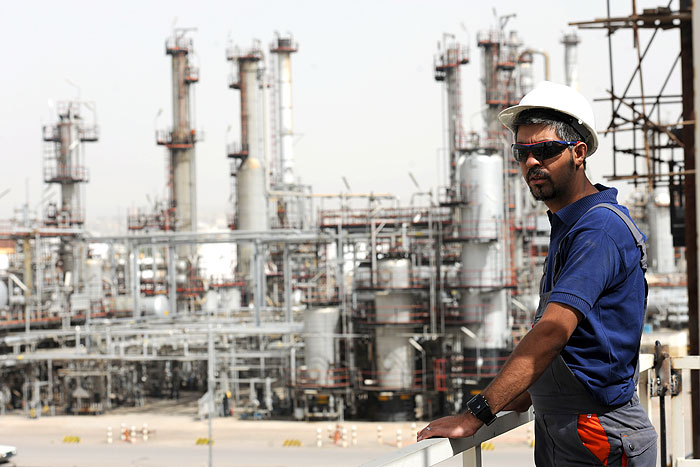Co-panelists included Mehran Sohrabi, professor at Heriot-Watt University, Reza Falahat, advisor to Nargan Amitis, Shahab Germai, head of the Research Institute of Enhanced Oil Recovery, Ali-Reza Bahmani-Nia, CEO of Kish Petroleum Engineering Company, Mohammad Baqer Ghanizadeh, CEO of Tehran Energy Consultants, and Javad Rostami, head of Research and Development at Iranian Offshore Oil Company.
The topics under discussion included finding solutions in order to enhance recovery from Iranian oil and gas fields, the necessity of administration in enhanced recovery, application of cutting edge technologies, and adapting improved recovery and enhanced recovery methods with Iran's petroleum industry needs.
Emadi highlighted the various aspects of enhanced oil recovery (EOR) and improved oil recovery (IOR), saying: "Various methods of EOR should be adapted with the needs of Iran's petroleum industry; otherwise, application of such methods will be of no use for this industry."
He said a significant challenge to decision-making for EOR was uncertainty of methods, adding: "We have to make efforts to reduce uncertainty in the EOR methods of fields."
For his part, Falahat underscored the necessity for the NIOC to define EOR strategies.
"A committee comprising 18 companies has been established and has so far held two meetings to examine EOR challenges and needs and help the NIOC determine perspectives for EOR," he said.
Germani said EOR was not an independent issue, adding that it must be incorporated into the development of fields.
"In light of complaints about the high cost of EOR, these costs may be reduced by drawing up an appropriate roadmap," he said.
Germani said a major challenge in Iran's petroleum industry was neglecting the principle of combining theoretical and practical research.
Rostami said: "The rate of oil recovery in Iran is low when compared with the volume of the country's deposits. If this rate is increased we may see production from these fields increase significantly."
The panel also highlighted absence of feeling of necessity and high costs as reasons why EOR and IOR methods have not become common in Iran.
Experts maintain that as long as oil production is low-cost in Iran, companies are not willing to take steps towards production by applying costly EOR methods.
The panel mainly focused on the point that maximum efficient recovery must be always taken into consideration.
As new wells are becoming operational at much higher costs, applying EOR and IOR methods has become a must.
Courtesy of Iran Petroleum


Your Comment